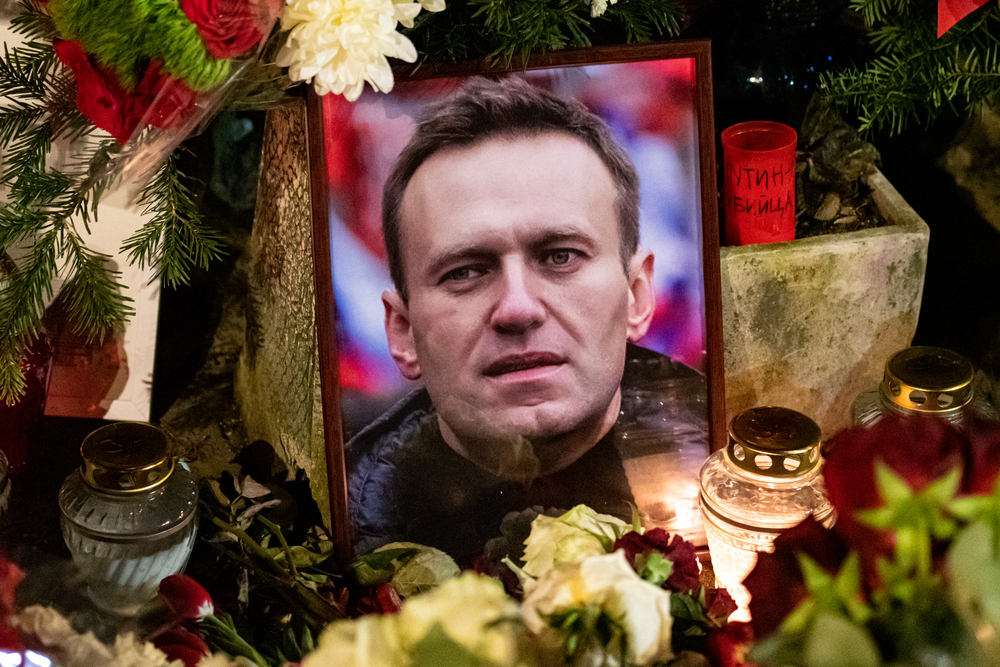Biden Said Putin Killed Navalny; He Didn’t
by | May 8, 2024

There are plenty of very real things to criticize Russian President Vladimir Putin for, not least of which is invading Ukraine. But lying (in this instance) may not be one of them.
Putin lied when he said Russia was not going to invade Ukraine. But, wrong though the invasion may have been, it is not unprecedented for a leader not to telegraph an invasion. Putin may also have been hoping to avoid an invasionup to the last moment, had the United States agreed to negotiate NATO expansion, or if Ukraine had agreed to negotiate the Minsk Accord to protect ethnic Russians in their country.
Putin, for all his flaws, may not be a leader who habitually lies about his foreign policy goals. In her book Russia, China and the West in the Post-Cold War Era, Suzanne Loftus argues that, at least when it comes to Russia’s grand strategy, Putin can generally be taken at his word; “it is safe to assume that what Russia says its goals are can mostly be accepted as true.” She bases her conclusion on a comprehensive 2021 RAND study by Samuel Charap and his colleagues that found that, with the exception of Ukraine, “its stated grand strategy mostly reflects how the country behaves internationally.” The RAND study found that Russia’s “revealed” grand strategy is not fundamentally different from its “stated” grand strategy and that what Putin says about Russia’s grand strategy is generally a “reliable predictor” of what Russia will do.
In two recent critical events, the West accused Putin of lying. In both events, he was not.
On June 13, 2022, Putin announced that Russia and Ukraine had “reached an agreement in Istanbul” and that the agreement had been initialed by both sides. Four days later, he held up the draft agreement and showed it to a delegation of African leaders. Skeptics in the political West replied that if Putin really had a draft agreement, he would not just wave it in the air from a distance, he would publish it as proof that he had tried to negotiate a peace.
But the skeptics were wrong, and Putin was telling the truth. First reported in the mainstream media by Foreign Affairs in August 2022, Fiona Hill and Angela Stent wrote, “According to multiple former senior U.S. officials we spoke with, in April 2022, Russian and Ukrainian negotiators appeared to have tentatively agreed on the outlines of a negotiated interim settlement.”
Not only American officials, but Ukrainian delegates to the talks, including Oleksiy Arestovych and Oleksandr Chalyi, also confirm the existence of the draft treaty.
But the draft agreement that Hill and Stent reported has now been seen by at least three Western sources. On March 1, The Wall Street Journal was able to confirm that the “draft peace treaty” does exist because they “and others familiar with the negotiations,” have “viewed” it.
On April 16, 2024, Samuel Charap of RAND and Sergey Radchenko of John Hopkins University, were able to write a report in Foreign Affairs after they “closely scrutinized two of these drafts.” The drafts were dated April 12 and April 15. Charap and Radchenko write that “in the midst of Moscow’s unprecedented aggression, the Russians and the Ukrainians almost finalized an agreement that would have ended the war.”
And on April 26, the German paper Die Welt reported that they had “the original document.” Consistent with the draft Charap and Radchenko saw, the “17-page document” obtained by Die Welt was a “draft agreement that both warring parties had negotiated by April 15, 2022.” According to the report, “Kyiv and Moscow largely agreed on conditions for an end to the war. Only a few points remained open. These were to be negotiated personally by Vladimir Putin and Volodymyr Zelenskyj at a summit meeting.” According to the Die Welt report, “Even though key points remained open, the draft agreement shows how close they were to a possible peace agreement in April 2022.”
The second event was the February 16, 2024 death of Russian opposition figure Alexei Navalny. Though Putin denied any involvement in Navalny’s death, the Western political and media choir convicted him of it. Though U.S. President Joe Biden admitted that, “we don’t know exactly what happened,” that did not stop him from saying in a televised statement, “Make no mistake: Putin is responsible for Navalny’s death.” Acting on that conviction, the United States imposed more than five hundred new sanctions on Russia.
There were a number of reasons to await a judgement from the intelligence community before rushing to judgement against Putin.
The first was that Navalny could no longer realistically been seen as a threat to the regime. University of Kent Russia scholar Richard Sakwa reports that, “Despite his prominence and high name recognition, his polling support remained in the single digits.” In 2021, only 19% of Russians approved of Navalny’s activities, and less than 5% thought him trustworthy. “Navalny,” Putin biographer Philip Short says, “remained more a gadfly than a national leader.” By January 2024, a month before his death, Navalny’s approval rating had sunk to lower than 1%, according to Denis Volkov, director of the independent Russian polling Levada Center.
But, though his elimination right before the Russian elections could do little to help Putin, it could, at that time, hurt him. Putin was polling very high. His pre-election approval rating in December 2023 was over 80%. One independent poll, taken at the end of December, pegged the number at 83%. The suspicion that Navalny’s death cast over his character is the last thing Putin needed at a time when things were going very well.
And now The Wall Street Journal has reported that “U.S. intelligence agencies have determined that Putin likely didn’t order Navalny to be killed at the notoriously brutal prison camp in February.” Though the Journal contorts itself, saying “[t]he assessment doesn’t dispute Putin’s culpability for Navalny’s death, but rather finds he probably didn’t order it at that moment,” it reports that the finding that Putin likely didn’t order Navalny’s death “is broadly accepted within the intelligence community and shared by several agencies, including the Central Intelligence Agency, the Office of the Director of National Intelligence, and the State Department’s intelligence unit.”
“The U.S. assessment,” The Wall Street Journal reports, “is based on a range of information, including some classified intelligence, and an analysis of public facts, including the timing of his death and how it overshadowed Putin’s re-election,” a public fact that could have been given greater consideration at the time.
In both the death of Navalny and the claim that a draft peace treaty existed, the United States and its partners were quick to portray Putin as a liar. Both portrayals advanced American interests in the war: the first by strengthening the picture of Putin as a brutal killer and by increasing sanctions on Russia and the second by strengthening the picture of Putin as a leader who is not serious about negotiations. But both were wrong.


0 Comments:
Post a Comment
Subscribe to Post Comments [Atom]
<< Home